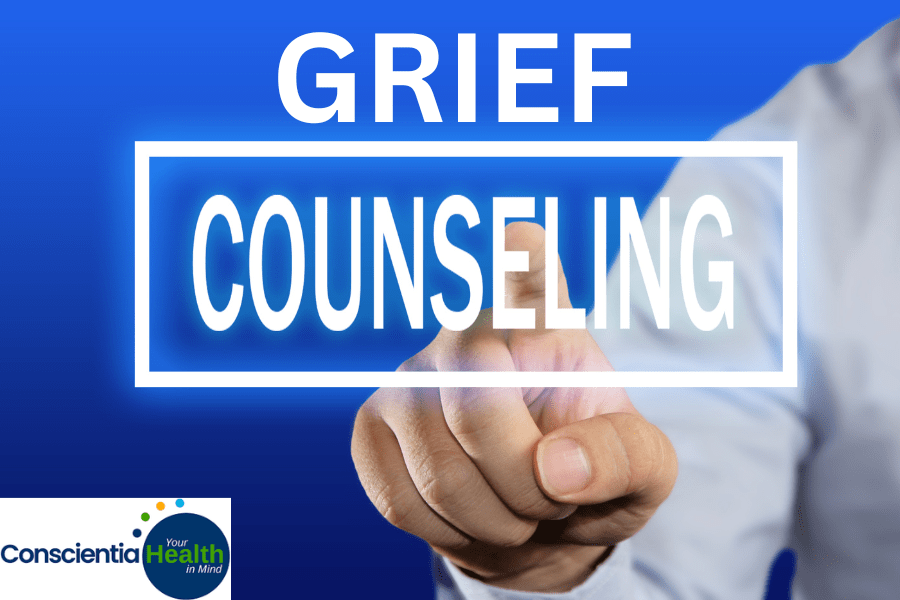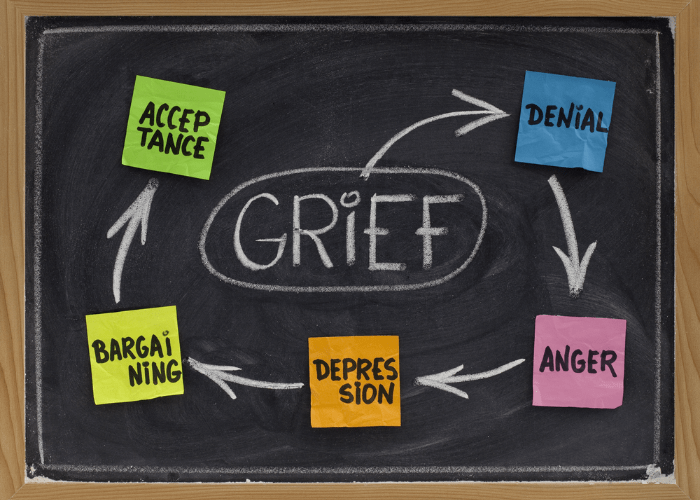Grief is a natural response to loss, yet it can be one of the most challenging experiences we go through. Whether it’s the death of a loved one, a significant life change, or the end of a meaningful relationship, grief can be overwhelming and all-consuming. Grief counseling offers a pathway to healing, providing the support and tools necessary to navigate this difficult journey. In this blog post, we will explore how to find strength in grief counseling, covering key aspects such as understanding grief, the role of grief counseling, finding the right counselor, techniques used in therapy, and self-care tips. Let’s begin by understanding the nature of grief.
Understanding Grief
Grief is a complex and multifaceted emotion that affects us physically, emotionally, and mentally. Elisabeth Kübler-Ross identified five stages of grief that many people experience:
- Denial: A temporary defense mechanism where the reality of the loss is hard to accept.
- Anger: As the masking effects of denial begin to wear off, anger may surface.
- Bargaining: Trying to negotiate a way out of the pain, often with a higher power.
- Depression: Deep sadness sets in as the reality of the loss becomes more apparent.
- Acceptance: Eventually, a sense of peace and acceptance of the new reality.
Symptoms of grief can vary widely but often include sadness, anger, guilt, anxiety, loneliness, and even physical symptoms like fatigue, headaches, or a weakened immune system. Understanding these stages and symptoms can help you recognize and process your grief more effectively.
The Role of Grief Counseling
Grief counseling is a type of therapy designed specifically to help individuals cope with the emotional, physical, and social effects of loss. Unlike general therapy, grief counseling focuses on the unique aspects of grief and loss.
Benefits of Grief Counseling:
- Emotional Support: Provides a safe and supportive environment to express feelings.
- Safe Space for Expression: Encourages open discussion about the loss and associated feelings.
- Coping Strategies: Helps develop effective coping mechanisms to deal with grief.
Finding the Right Grief Counselor
Choosing the right grief counselor is a critical step in your healing journey. Here are some qualifications and considerations to keep in mind:
Qualifications to Look For:
- Certifications and Training: Ensure the counselor is certified and trained in grief counseling.
- Experience with Grief and Loss: Look for a counselor with specific experience in handling grief and loss.
Personal Compatibility:
- Comfort and Trust: Feeling comfortable and trusting your counselor is essential.
- Initial Consultation Tips: Use the first session to gauge your comfort level and the counselor’s approach.
Techniques Used in Grief Counseling

Grief counselors employ various techniques to help clients process their emotions and find strength:
- Cognitive Behavioral Therapy (CBT): Helps reframe negative thoughts and develop healthier thinking patterns.
- Narrative Therapy: Encourages clients to tell their stories, helping them make sense of their loss.
- Mindfulness and Meditation: Promotes relaxation and present-moment awareness.
- Group Therapy: Provides a sense of community and shared experience.
- Art and Music Therapy: Offers creative outlets for expressing emotions.
Building Strength Through Grief Counseling
Finding strength in grief counseling involves setting realistic goals, developing healthy coping mechanisms, creating a support system, embracing positive memories, and allowing yourself to heal at your own pace.
Setting Realistic Goals:
- Understand that healing is a process and will take time.
- Set small, achievable goals to work towards.
Developing Healthy Coping Mechanisms:
- Engage in activities that bring joy and relaxation.
- Practice mindfulness and meditation to stay grounded.
Creating a Support System:
- Lean on friends and family for support.
- Join support groups to connect with others who understand your experience.
Embracing Positive Memories:
- Reflect on and celebrate the good times shared with your loved one.
- Create a memory box or scrapbook to honor their life.
Allowing Yourself to Heal at Your Own Pace:
- Understand that grief is unique to each person; there’s no right or wrong way to grieve.
- Be patient with yourself and allow time for healing.
Self-Care During Grief Counseling
Self-care is crucial during the grieving process. Here are some practical self-care tips:
Importance of Self-Care:
- It helps maintain physical and emotional health.
- Provides a sense of control and normalcy.
Practical Self-Care Tips:
- Physical Activities: Exercise regularly to boost mood and energy levels.
- Healthy Eating: Maintain a balanced diet to support overall health.
- Adequate Sleep: Ensure you get enough rest to help your body heal.
- Journaling and Reflection: Write about your feelings and experiences to process your grief.
Resources and Support Networks

In addition to grief counseling, various resources, and support networks can aid in your healing journey:
- Online Support Groups: Connect with others experiencing similar losses.
- Local Grief Counseling Centers: Seek professional help in your community.
- Books and Articles on Grief: Educate yourself about grief and coping strategies.
- Helplines and Crisis Support: Reach out for immediate help in times of crisis.
Techniques Used in Grief Counseling
| Technique | Description | Benefits |
|---|---|---|
| Cognitive Behavioral Therapy (CBT) | Reframes negative thoughts and develops healthier thinking patterns | Improves mental clarity and reduces anxiety |
| Narrative Therapy | Encourages storytelling to make sense of the loss | Provides emotional release and insight |
| Mindfulness and Meditation | Promotes relaxation and present-moment awareness | Reduces stress and improves emotional regulation |
| Group Therapy | Connects individuals with similar experiences | Offers community support and shared healing |
| Art and Music Therapy | Uses creative outlets for expressing emotions | Enhances emotional expression and processing |
Key Points To Remember
- Understanding Grief: Recognize the stages and symptoms of grief.
- Role of Grief Counseling: Provides emotional support, a safe space for expression, and coping strategies.
- Finding the Right Counselor: Look for qualifications and personal compatibility.
- Techniques Used: Includes CBT, narrative therapy, mindfulness, group therapy, and art/music therapy.
- Building Strength: Set realistic goals, develop coping mechanisms, create a support system, and allow yourself to heal.
- Self-Care: Engage in physical activities, maintain a healthy diet, get adequate sleep, and practice journaling.
- Resources: Utilize online support groups, local centers, books, and helplines.
FAQs
How long does grief counseling typically last?
Grief counseling duration varies based on individual needs, but it typically ranges from a few months to a year.
Can grief counseling help with unresolved past grief?
Yes, grief counseling can address unresolved grief from the past, helping you process and heal.
What if I don’t feel comfortable with my counselor?
It’s essential to feel comfortable with your counselor. If you don’t, consider finding a different counselor who better meets your needs.
Is it normal to still feel grief after counseling?
Yes, it’s normal to continue feeling grief even after counseling. Grief can resurface, but counseling provides tools to manage it.
Conclusion
Grief counseling offers a pathway to healing, providing the support and tools necessary to navigate the challenging journey of grief. By understanding the nature of grief, finding the right counselor, utilizing effective techniques, and practicing self-care, you can find strength and resilience. Remember, grief is a unique and personal experience, and it’s essential to allow yourself the time and space to heal. If you or someone you know is struggling with grief, don’t hesitate to seek help. Conscientia Health is here to support you every step of the way.
Contact Us
If you’re struggling with grief or know someone who is, don’t wait to seek help. Contact Conscientia Health to find a grief counselor who can support you on your healing journey. Share your story with us and connect with others who understand what you’re going through. Together, we can find strength in grief counseling and move towards a brighter future.










